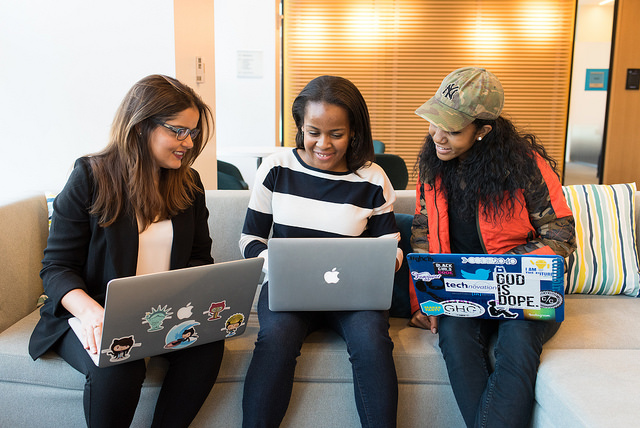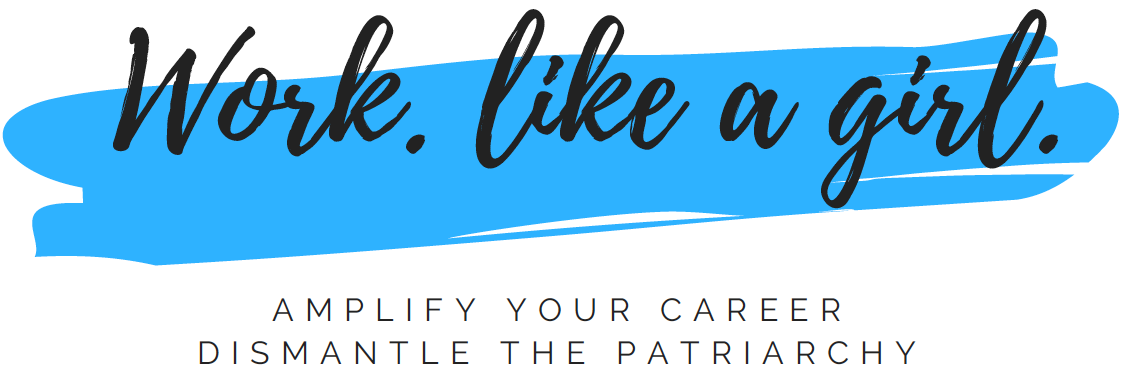I Don’t Think Marginalizing Anybody Who Already Feels Marginalized is a Good Idea
I’ve lived long enough to know that starting a conversation with a reprimand will never lead to the outcome you desire. In fact, just the opposite will happen.
A conversation on intersectionality, and the role race plays within feminism is underway. Which is awesome, and kudos to the women who have initiated the dialogue. I strongly believe that feminism cannot proceed successfully without a conversation about race and intersectionality. What’s interesting is the tone of finger waving instead of a discussion of perspective.
Let me say, I learned about intersectionality by some brilliant women, both black and white. (Can I give a shout out to the late Pamela Bridgewater, Adrienne Davis, Zipporah Wiseman, and Rhea Ballard -Thrower!) Ironically, I have notice some white women who are initiating the conversation with a reprimand to other white women. Which may be warranted, but won’t be affective.
Tone is everything, and while white women have been back actors (Permit Patty, Barbecue Becky, et al) they have also been marginalized themselves. It’s not an excuse, but an understanding of perspective. For too long a false narrative of “outsiders who will harm your women and children” has dominated white conversations. We see it in media and on film. However, white women are more often than not victims of abuse, harassment and violence at the hands of white men because these are the men they know. So not only is this fear of people of color misplaced, in the end, it equates to Stockholm Syndrome as white women are siding with those in power rather than creating a counter-culture with other oppressed individuals that will ultimately lead to social justice.
How do we bridge the divide?
We as white women need to learn the history of other groups. It’s important to understand the story of others, not so we can “help” anyone (because that is a fake sense of “saving” and very condescending), but so that we:
(1) realize every experience is different and hold space for those differences. Holding space and deciding not to speak, but instead asking about the other person’s experience is powerful. Witness someone else’s truth, and do not get defensive if their experience contradicts your own.
(2) know that different is not inferior. No one needs saving and no one needs your opinion. Instead, ask how you can support the other person. Don’t make assumptions, but listen to the other woman’s story. Don’t say not all white women. Don’t say, oh, she probably meant…. When you do, you’re focused on you. It’s inadvertent, but you’re highlighting how you feel “wrong” and “uncomfortable” and “misunderstood.” Do you know how many times she has felt wrong and uncomfortable and misunderstood? Do you know how many times the Arab American has been called a terrorist? Or how many times your Black colleague has endured subtle, yet systemic, racism? More times than you’ve worn yoga pants. Meet her with compassion, don’t be defensive, and simply listen with compassion.
(3) get curious. Do you have close friends of a different race? That you’ve invited to stay in your home? If not, why? By inviting someone from a different race or ethnicity into your home, you get to share your stories and traditions, and ask questions about theirs. This might be scary at first. I’m of Italian decent and I wasn’t sure if it would be offensive to invite someone non-christian to my annual Feast of the Seven Fishes party. I decided not to censor myself, but took the risk of allowing others to tell me if my invitation was not well-received. I took the risk, and decided that I would listen and learn from the experience. The result? Last year the majority of my guests were Jewish, and we had more food than ever before!
Sound benign and a little silly? So is the arbitrary social construct known as race. But it does matter. We might not have created this divide, but our current reality has come to fruition because of centuries of oppression. Race does still matter in the sense that social entities and individuals alike are still making differences stand out more than our common bond. Make no mistake: as white women, when we say nothing or decide the issue is too much for us, we’re choosing to blindly benefit from a system that provides us privilege.
What’s Next?
A couple of ideas to move the needle: Can you ask questions (awkward though they my seem) instead of making assumptions? Can we sit with the awkwardness? Can we notice our own defensiveness when a black woman share her experiences about white peers? Rather than saying, “Well, not all white women…” can we say, “I’m sorry I was blind to that.” “I’m sorry you’ve been enduring that. I didn’t know.” Ask how we can support one another. And then move forward. Because there’s a whole world that needs saving, and it will probably go better and quicker if we collaborate on this one.


